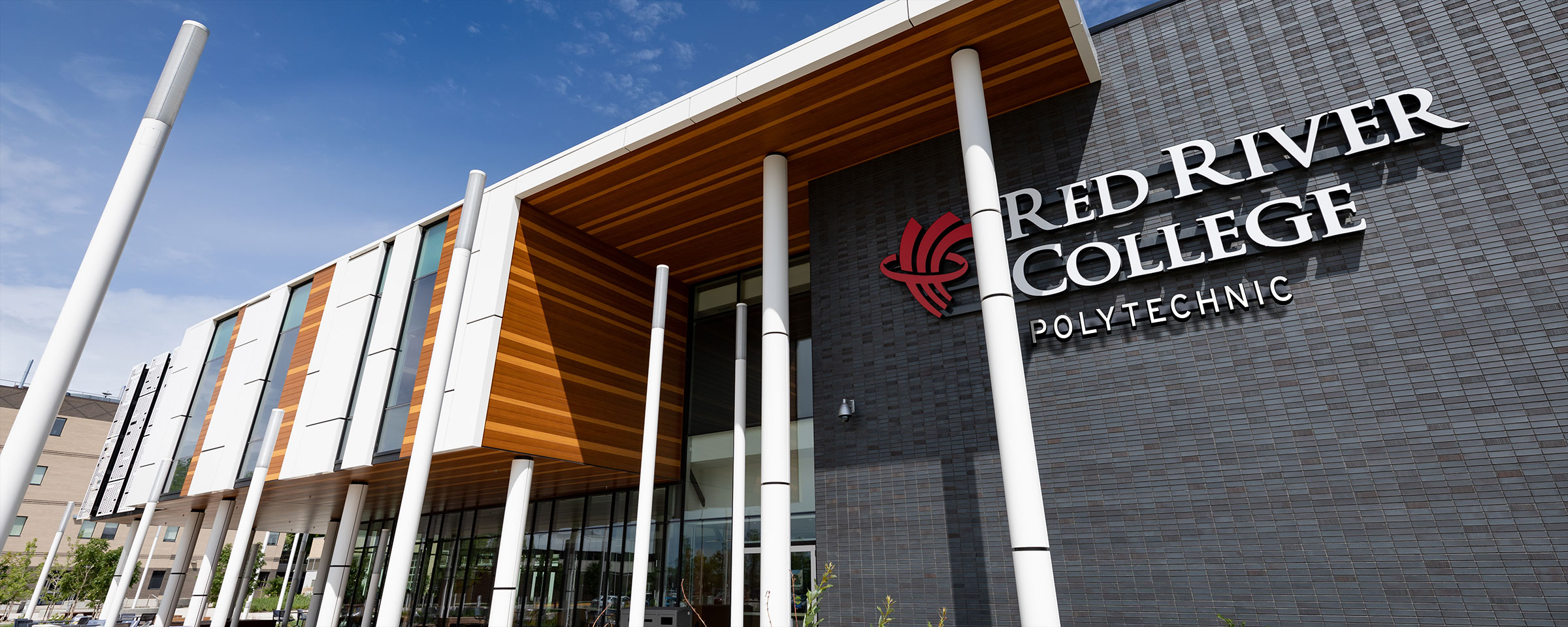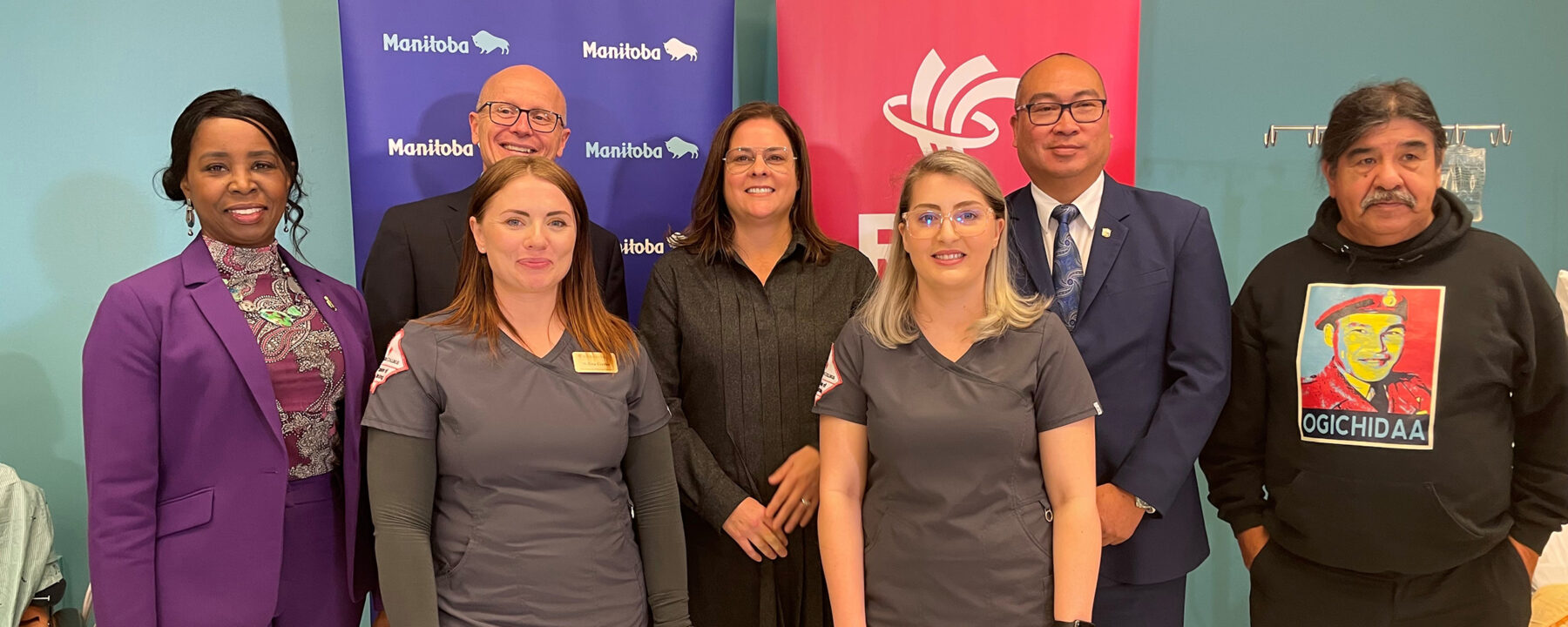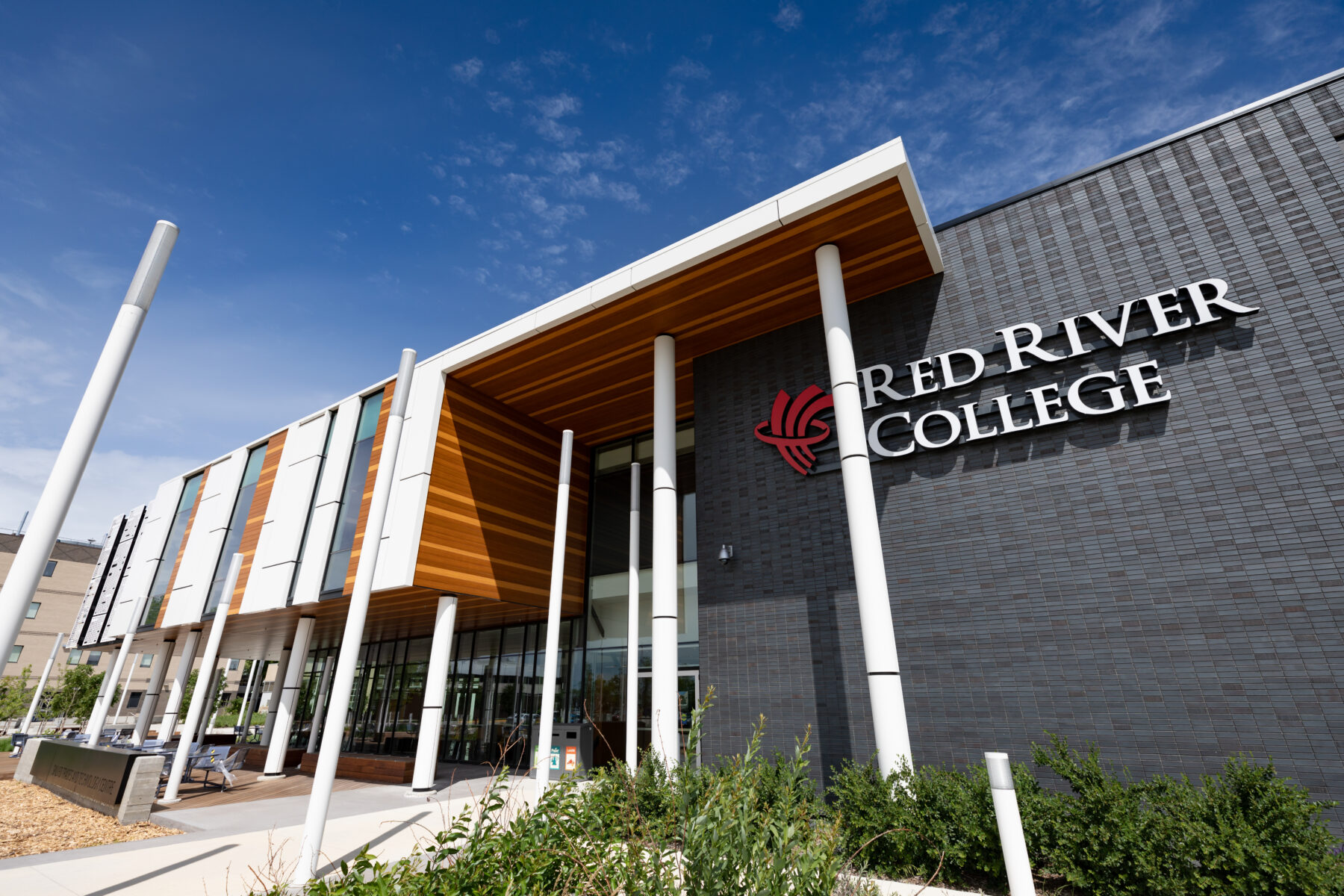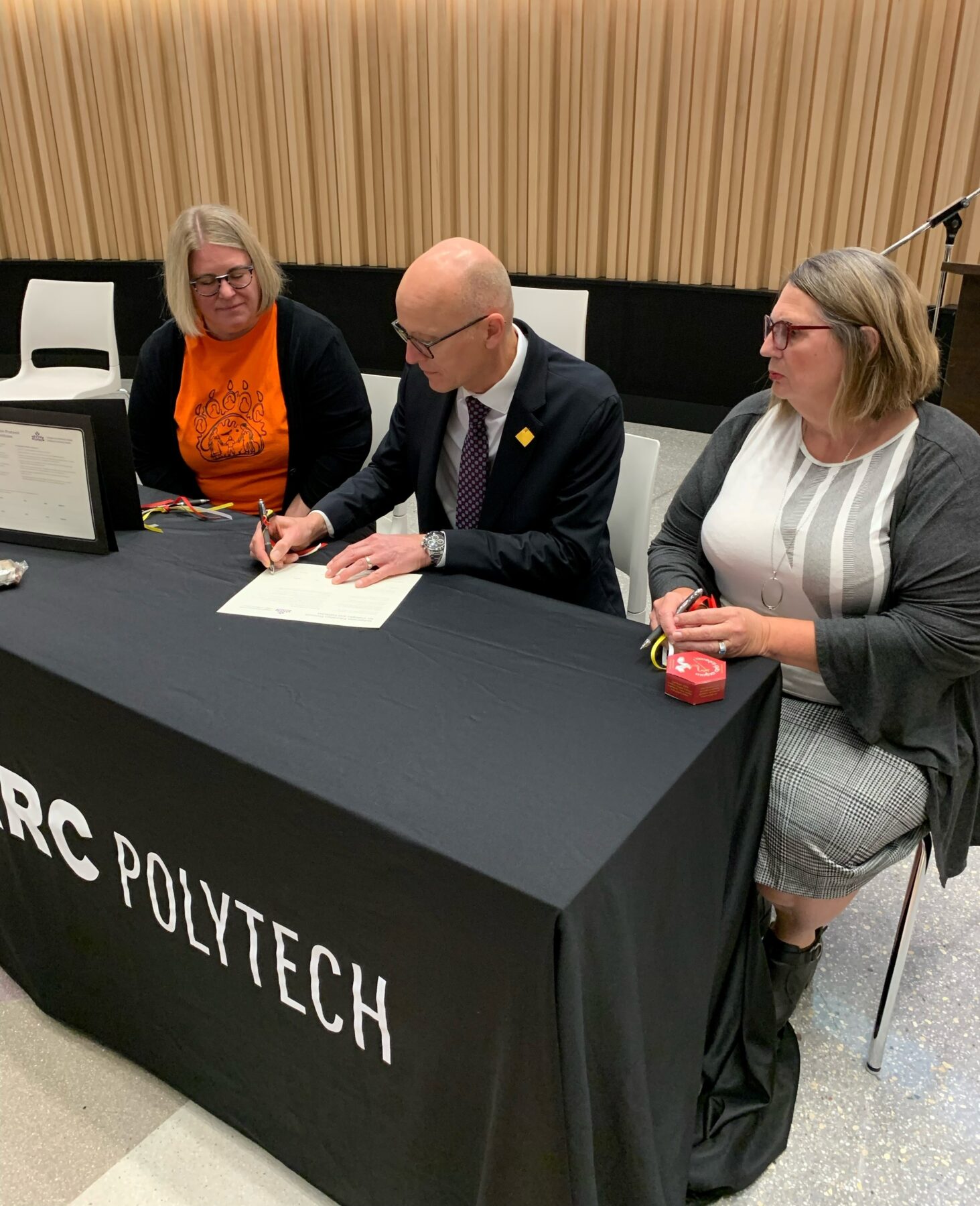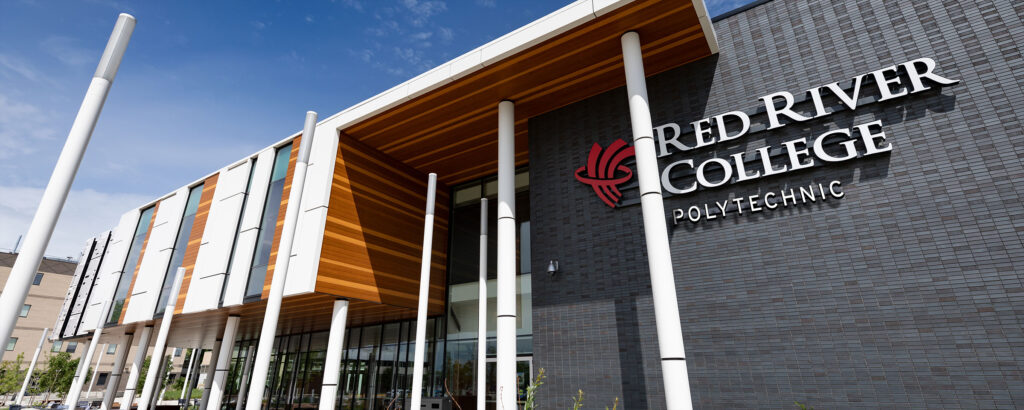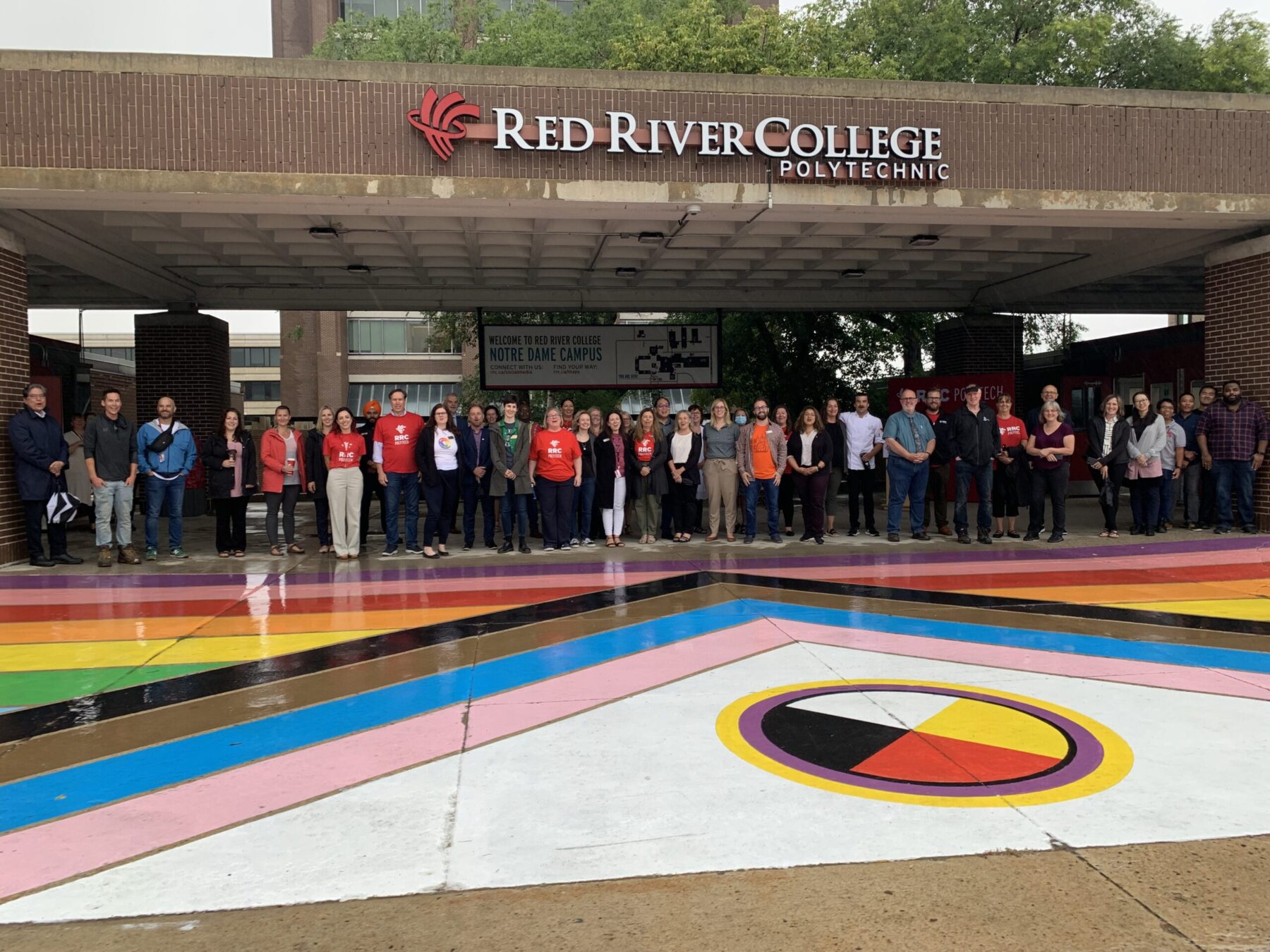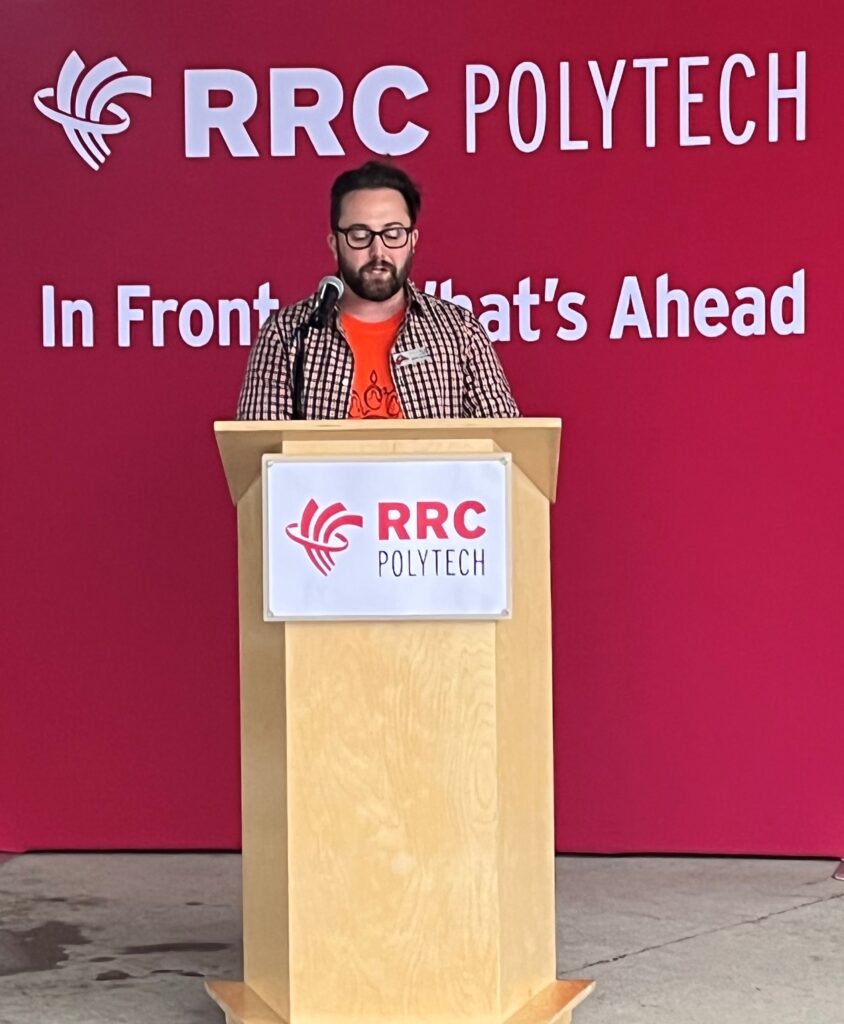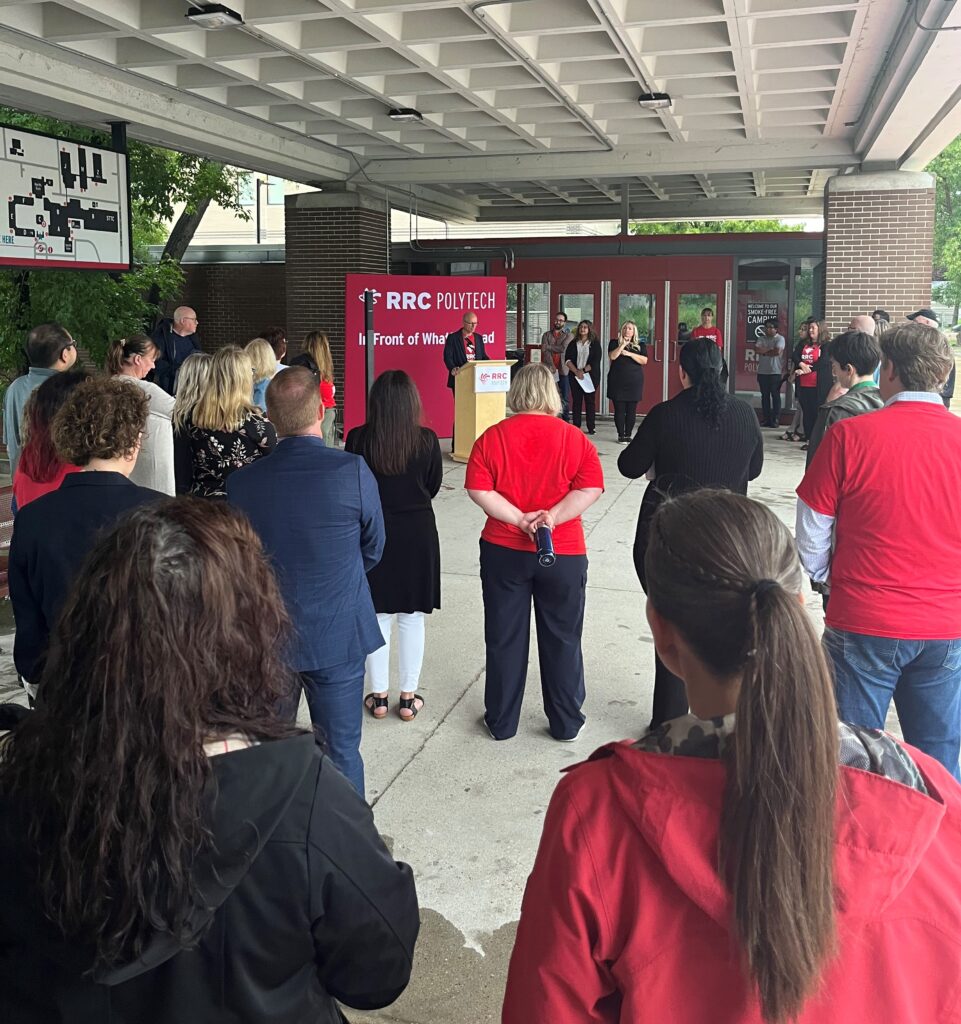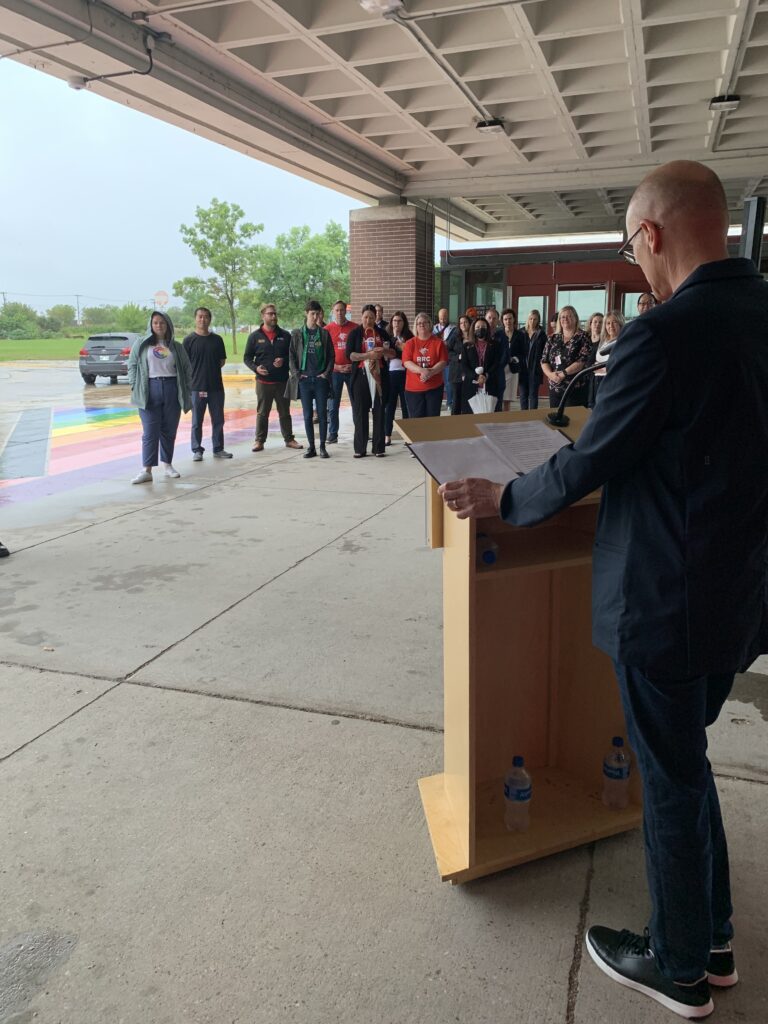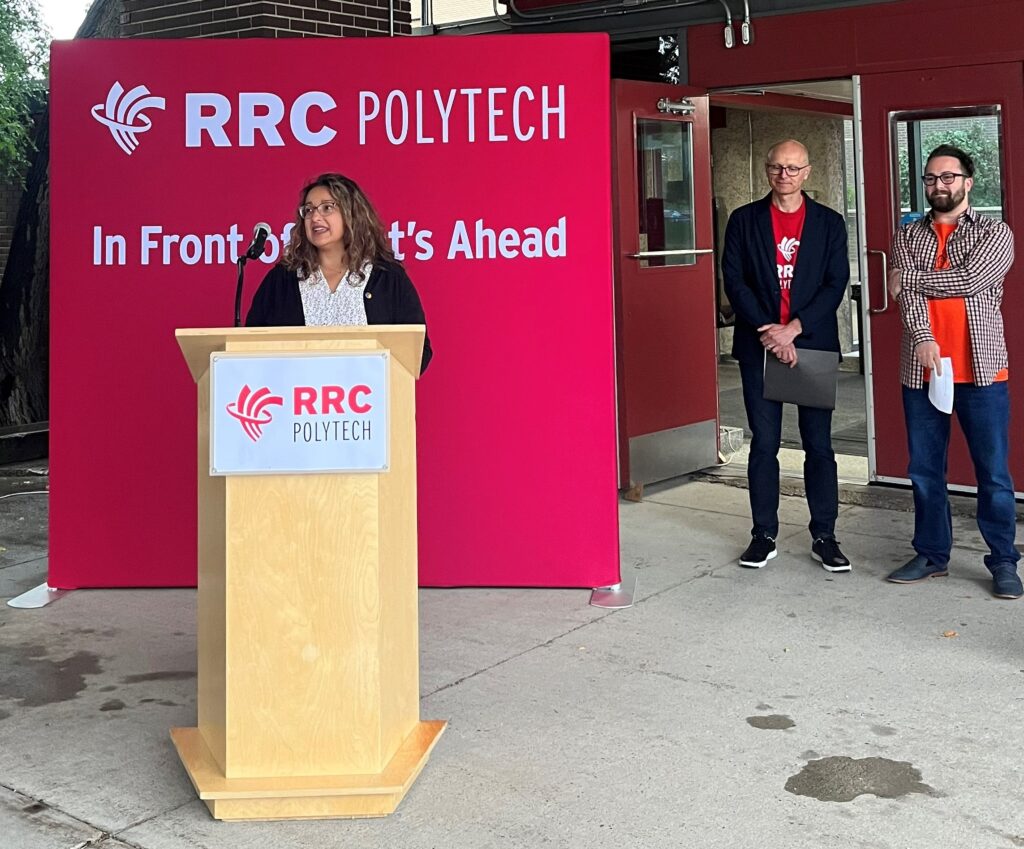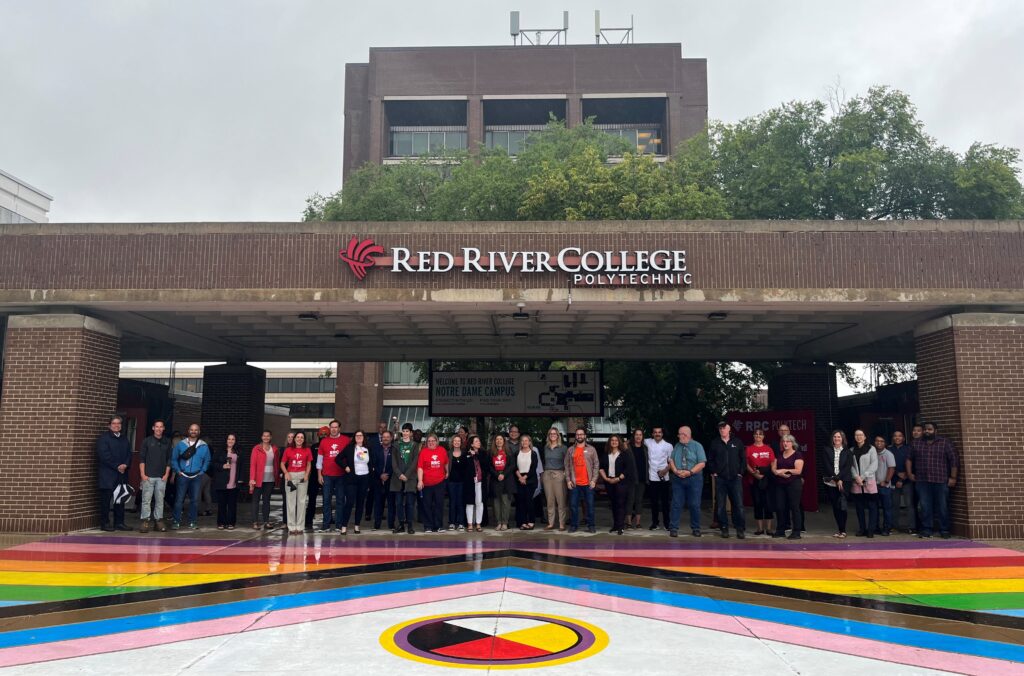RRC Polytech to House Immersive Interdisciplinary Simulation Centre
Provincial Funding to Support Centre’s Construction and Implementation of New Equipment and Technology for Nursing, Community Services and Allied Health Programs
Winnipeg, Manitoba, on Treaty No. 1 Territory and the Homeland of the Red River Métis Nation – Students in RRC Polytech’s Health Sciences and Community Services programs will soon be trained in an immersive lab, which simulates real-life scenarios including mock disasters, in-home emergencies, and care in community health spaces.
Today, the Government of Manitoba is committing $12.53 million in funding for RRC Polytech’s new Interdisciplinary Health Sciences and Community Services Simulation Centre (Simulation Centre) at its Notre Dame Campus. The Simulation Centre will provide invaluable experiential training for the province’s future healthcare and community services professionals, ensuring that they are well-prepared with specialized skillsets required for the field.
The 16,630-square-foot Simulation Centre will feature dynamic learning spaces with immersive technology and settings, to be used annually by 1,000 RRC Polytech students from 15 programs, spanning from nursing to paramedicine and child and youth care practitioners.
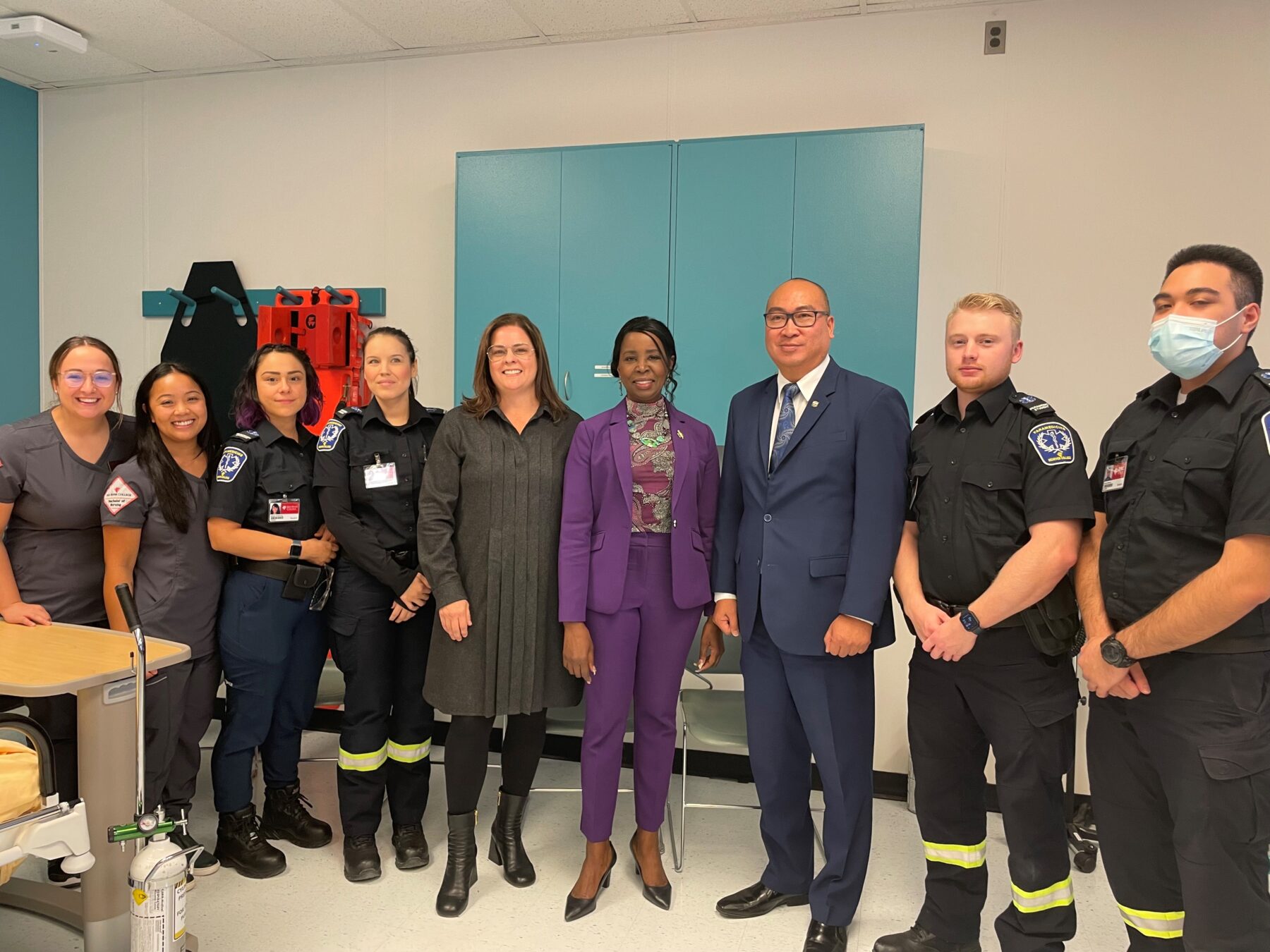
“This new multi-purpose facility supports our government’s commitment to train more nurses and health-care professionals and build a stronger, more sustainable health care system,” says The Honourable Heather Stefanson, Premier of Manitoba. Our government is proud to work collaboratively with RRC Polytech and all of our post-secondary institutions to provide training opportunities for our youth while building a strong workforce now and well into the future.”
“The centre will help students receive the training they will need to thrive in nursing and other health care fields, leading them into fulfilling careers in vital areas of our province’s economy,” says The Honourable Jon Reyes, Minister of Advanced Education, Skills and Immigration, Government of Manitoba. “It will be a key component in realizing the next phase of our nursing seat expansion on the path to reaching our 400-seat goal.”
“This centre will provide quality training for students working toward careers in the health sciences, helping them to gain valuable skills and experience in a simulated, supportive learning environment,” says The Honourable Audrey Gordon, Minister of Health, Government of Manitoba. “This new facility will help learners succeed in their fields, strengthening the health care system for all Manitobans.”
Accrediting bodies continue to increase requirements for simulation experience, highlighting the deep importance of this type of training to complement clinical practicums and theoretical learning. The Simulation Centre was designed specifically to meet the increasing need for students to be immersed in realistic scenarios and environments that replicate those they will encounter in healthcare and community settings.
“The Government of Manitoba’s investment in the Health Sciences and Community Services Simulation Centre is critical to growing 15 Allied Health and Community Services programs at RRC Polytech, and in turn, providing career-ready graduates to meet labour market needs, says Fred Meier, President and CEO, RRC Polytech. The Centre will engage students in transformative learning; for example, the inclusion of a simulated apartment setting creates a realistic scenario where paramedics and direct support professionals interact with patients in their own homes and incorporate cultural home-based protocols and person-centred care.”
Housed at RRC Polytech’s Notre Dame Campus, the new Centre will have a strong focus on interdisciplinary and collaborative learning, with future nurses, paramedics, allied health and community services professionals engaging in experiential training in a wide range of settings. It will house a triage station, hospital ward, high-fidelity healthcare simulation room, phlebotomy laboratory, apartment, and exam room for experiential learning, plus academic classrooms and office space.
“Through small- and large-scale activities and mock scenarios, the Simulation Centre will engage students from multiple programs, mirroring actual healthcare and community settings they will experience in the workforce, says Debbie O’Donnell Weigelt, Dean, School of Health Sciences and Community Services, RRC Polytech.
This type of experience is fundamental to our polytechnic education model – deep theoretical learning blended with experiential training. It sets our graduates ahead of the curve and on a clear path to making an impact in the field of health and community care.”
Preliminary work is underway, and RRC Polytech is in the process of acquiring new equipment and technology. The Centre is anticipated to take two years to complete. Learn more about RRC Polytech’s Health Sciences and Community Services online.
